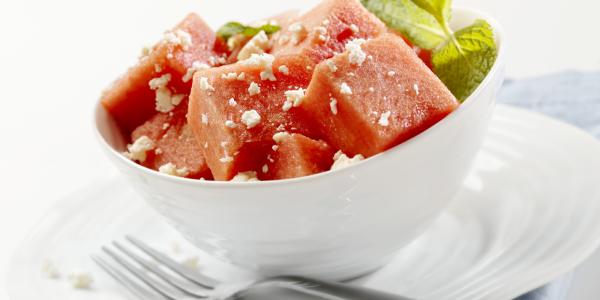
Focusing on "eating the rainbow" is a good way to make sure that you are getting a variety of nutrients from various fruits and vegetables. The red and orange foods, such as red bell peppers and oranges are high in vitamin C, which is a key player in preventing bone loss. Green foods, such as spinach, peas, and collard greens are high in iron (which you can also find in animal sources). Dark blue and black fruits and vegetables like wild rice or black beans contain high level of antioxidants.
Many adults notice that they feel thirsty less often than they had previously. This does not mean you do not need as much water as you used to drink! You may be showing signs of dehydration in other ways, and it is important that you continue to drink water. This will help food move through your system easily. Your body needs six to eight cups of liquid every day, and most of that should come from plain water.
Focusing on having a well rounded and nutrient dense diet will help you stay at a healthy body weight, avoid developing health risks from a poor nutrition, and maintain a comfortable energy level.
For more advice on how to improve your nutrition as you age, schedule an appointment with an El Camino Hospital Registered Dietitian. Remember, HealthPerks members are eligible for one free 30-minute consultation. To schedule an appointment, call 650-940-7210.
This article first appeared in the July 2014 edition of the HealthPerks newsletter.

